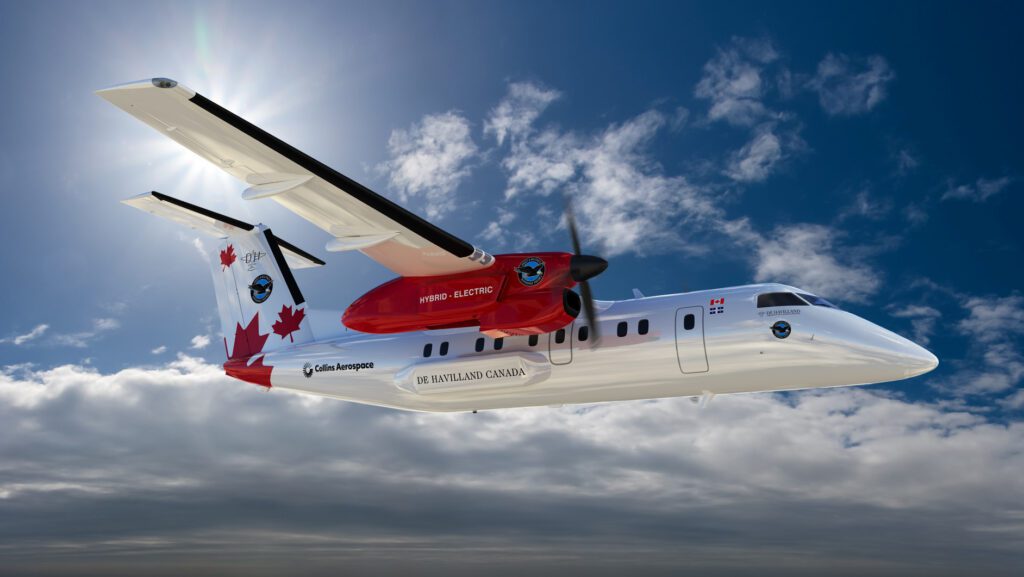
The regional hybrid-electric flight demonstrator developed by Raytheon Technologies combines a 1 MW electric motor from Collins Aerospace with a Pratt & Whitney engine. (Photo: Raytheon)
American aerospace company Raytheon Technologies is doing its part to help the aviation industry reach its goal of sustainable air travel. In addition to funding other companies focused on developing hybrid-electric propulsion systems via its venture capital firm RTX Ventures, Raytheon recently completed the first engine run of its regional hybrid-electric demonstrator.
If this program is successful, Raytheon’s new hybrid-electric propulsion system will enable regional aircraft to fly more efficiently, including during take-off and landing. It achieves this by combining traditional, fuel-burning engines with electric batteries and motors. This new method can reduce emissions and fuel burn by up to 30% when compared to preexisting regional turboprops and can lead to additional benefits like lower maintenance costs for operators.
This milestone marks another important step as the program works to begin flight testing in 2024. The system uses contributions from two of Raytheon’s subsidiaries: Collins Aerospace and Pratt & Whitney Canada. Performing up to the company’s standards during its test in Longueuil, Quebec, this system integrates a 1MW electric motor from Collins Aerospace and a highly efficient engine from Pratt & Whitney and demonstrates the newest technology being deployed as the industry attempts to decarbonize air transport.
As Jean Thomassin, Pratt & Whitney Canada’s Executive Director of New Products and Services, explained, “Hybrid-electric propulsion technology offers significant potential to optimize efficiency across a range of different aircraft applications, helping our industry meet its ambitious goal for achieving net zero CO2 emissions.”
Next year, Raytheon’s team hopes to begin flight testing the hybrid-electric propulsion system by using a modified De Havilland Canada Dash 8-100 aircraft as the testbed. The flight tests will be operated by Flight Test Centre of Excellence (Cert Center Canada – 3C). In addition to leading the flight tests, 3C will also be responsible for integrating the system into the aircraft.
Raytheon Technologies’ project, launched via its Collins Aerospace and Pratt & Whitney Canada companies, has seen support from other organizations across the world. The batteries will be supplied by H55 S.A., which recently received an investment from RTX Ventures. This and other electrical control systems will be further developed by organizations like the Innovative Vehicle Institute and the National Research Council of Canada.
This is not the first time cross-organizational collaboration was utilized to further the cause for cleaner aviation. MTU Engines, with the support of the European Union Clean Aviation Joint Undertaking, coordinated with a consortium of aviation technology companies to create systems designed to reduce carbon emissions from aircraft by up to 25%.
As the aviation industry falls under heavier scrutiny for the adverse environmental impacts it causes, it seems like manufacturers and governments alike are rallying behind the cause to reduce carbon emissions and improve the sustainability of air travel. Raytheon Technologies’ successful first test run of its new system demonstrates the industry’s progress towards greener aviation and a more sustainable future.